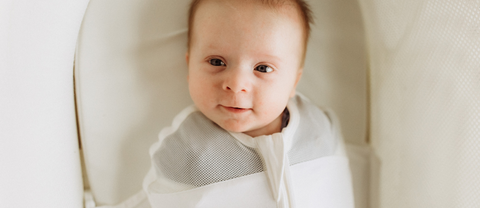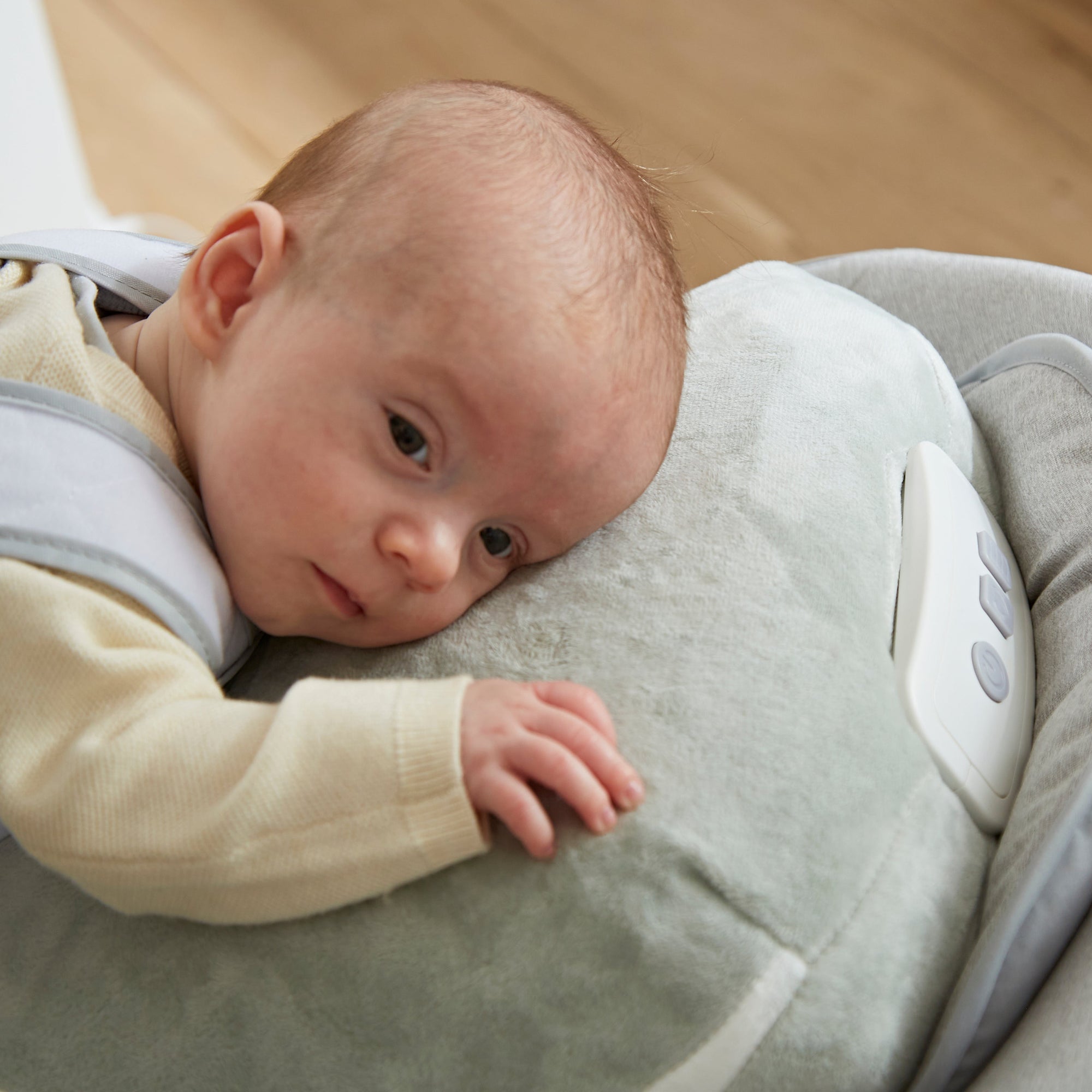Swaddling is gently wrapping a newborn in a soft, breathable blanket to help them feel calm, safe, secure and, even better, sleep more soundly! The theory behind swaddling is that it will make your baby feel safe and comfortable, just as they would in your womb. Although there are many benefits to swaddling your baby, there are also some risks.

The Benefits Of Swaddling
When your baby is sleeping, you may have noticed them jerking their body around. The startle reflex (hypnagogic startles) is the cause of these perfectly normal jerks. Some people say that swaddling seems to help their little one to settle more easily and sleep for longer, while others find that it can help calm their baby. Your baby may sleep for extended periods if their startle reflex has not woken them. Swaddling may also help to soothe them when over-stimulated.
According to experts, swaddling helps mimic the sense of security your baby experienced when in the womb when they had less room to move around. Swaddling your newborn may help them cry less frequently since the feeling of being "held", and feeling cosy can soothe and relax them. Here are some benefits you and your baby will experience:
- Swaddling protects your baby against their natural startle reflex, which means better sleep for both of you.
- It may help calm a colicky baby.
- It helps eliminate anxiety in your baby by imitating your touch, which helps your baby learn to self-soothe.
- It keeps their hands off their face and helps prevent scratching
- It helps your baby sleep longer and better
- It helps prevent SIDS (Sudden infant death syndrome) by keeping unnecessary items like pillows, blankets and stuffed animals out of your baby's crib.
- It keeps your baby on their back while they sleep.

The Risks Of Swaddling
Although swaddling comes with numerous benefits, you need to make sure you're doing it right to avoid danger or discomfort for your baby. It has been suggested that early swaddling could affect breastfeeding if babies are prevented from having skin-to-skin contact during feeding. However, research has not found long-term adverse effects on breastfeeding.
Wrapping your baby the right way will encourage your little one to sleep more soundly while giving you peace of mind (so you can get some sleep yourself!). Some important swaddling safety tips to keep in mind are:
- Don't wrap too tight. Swaddling your baby tight enough that they can't move their hips or legs may limit the development of the hips. Aim for a tight enough swaddle to hold your baby's arms securely, without completely immobilizing the entire body.
- Always lay your baby down on their back after swaddling.
- Stop swaddling your baby as soon as they can roll over.
- Refrain from doubling up on blankets when you swaddle. The extra thickness could cause your baby to overheat. It can also dislodge easier, which adds to the risk of suffocation.
Swaddling your baby is a great way to get them to sleep better. When your baby sleeps better, so do you. Once you learn how to swaddle a baby, you'll know how to do it in your sleep.
Related Blogs:


